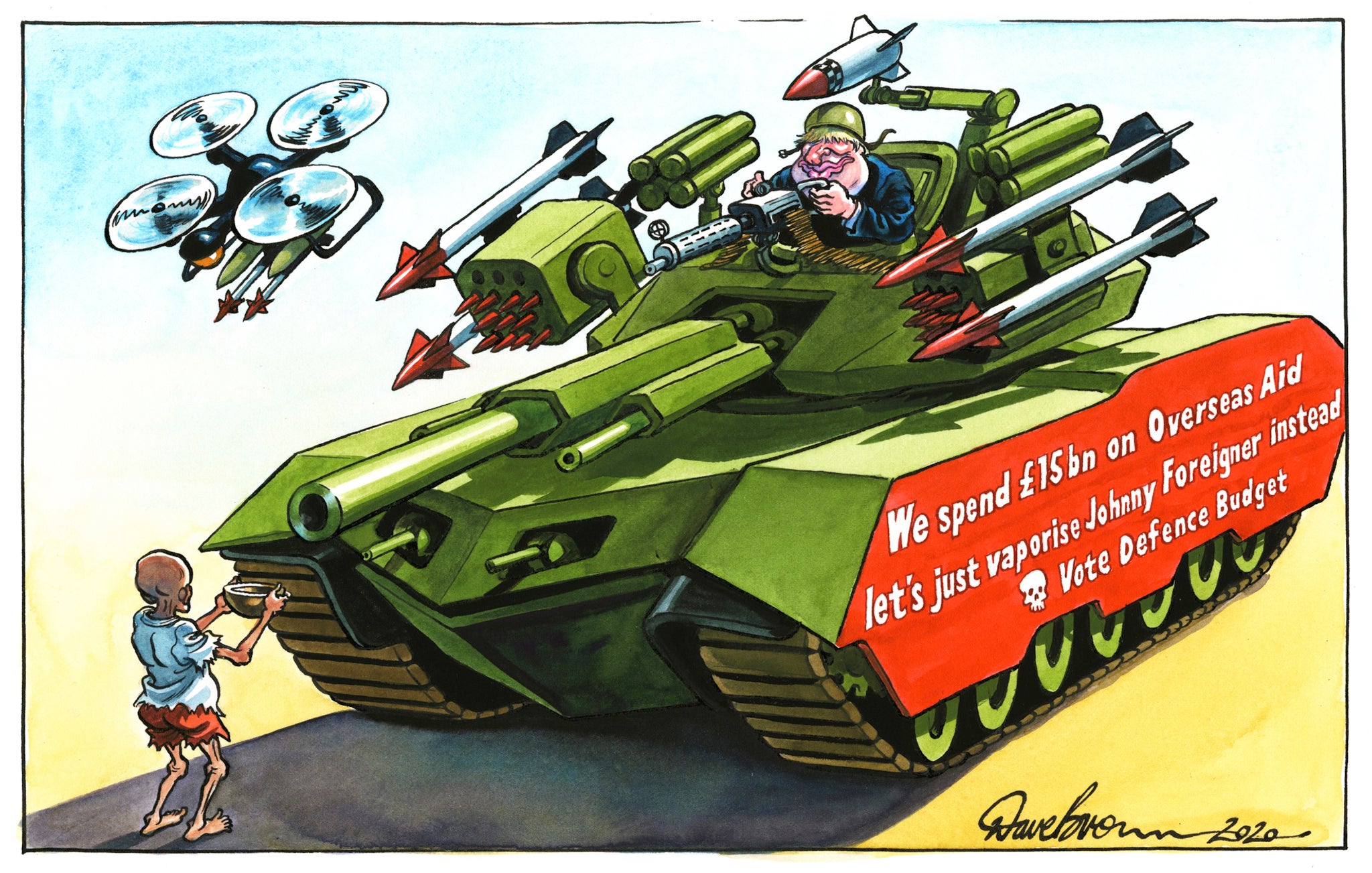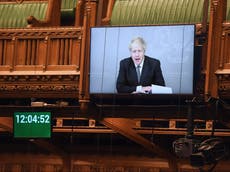Defence spending plans show a serious mismatch between what the government wants and what it can actually achieve
Editorial: Rather than spending astronomical sums on projecting British power in Asia, the government should devote resources to rebuilding the economy

There was something delusional about the prime minister’s announcement to parliament of a substantial increase in British defence spending (widely trailed to the media in advance, of course, with the usual disrespect to the Commons).
Boris Johnson spoke of Britain’s place in the world in almost Edwardian terms, as if there was still some vast British empire with its vital shipping lines to defend. It was as if the casual, harmless, meaningless label of “global Britain”, a palliative slogan to make people feel a bit more optimistic about the impending disaster of Brexit, was actually being taken seriously by her majesty’s government. Mr Johnson says he wants Britain to be the foremost naval power in Europe, presumably excluding Russia. He wants to dispatch aircraft carriers to the Gulf and the South China Sea. The RAF is to have a Space Command. Why? The rationale for devoting scarce resources to such projects is at best vague. It is, ironically, a dangerous moment.
In short, and especially after Covid and post-Brexit, the country cannot afford such global pretensions. Perhaps, if these economic disasters had somewhere been avoided, then there might be a case for the expansion of the Royal Navy. Diplomatically, it might be useful to have capable armed forces, with all that implies for Nato and collective security, and to use these barter in trade negotiations and otherwise pursuing British interests with the European Union and the United States.
Yet with UK debt levels approaching their highest since the Second World War, there seems little point in taking on commitments that will prove unsustainable. They may also be badly designed, given that the government has announced its defence plans before defining its strategic goals. As has happened too often since the end of the Cold War, Britain risks a serious mismatch between what it wishes to do on the world stage and the means available to it, even with heroic assumptions about the economy bouncing back. Planning a flexible response to future threats is easier if they are at least defined.
There is a widespread expectation that the international development budget will be raided in order to pay for the new kit. If so, then this will be a false economy. Many of the problems the west faces stem, directly or indirectly, from underdevelopment, both economic and social. Terrorism, migration, local wars that can destabilise whole regions and imperil human rights and western interests – all too often these have their origins in neglect. Had, for example, the west not ignored the Taliban and the establishment of Al Qaeda in Afghanistan in the 1990s, then 9/11 and all that followed might not have occurred. Making the poorest people on Earth very slightly richer can have a transformative effect on their lives – but create security and new partnerships for the first world as well. Such broad-based innovative effective aid was what the Department for International Development was so good at; its reward was abolition. No minister is prepared to stand by the pledge made at the election last December that the aid target of 0.7 per cent of national income will be maintained. The writing is on the wall.
Rather than spending astronomical sums on projecting British power into east Asia and outer space, and retaining an increasingly outmoded nuclear deterrent (which has hardly prevented Russian aggression), the British might devote more resources to rebuilding the economy through investment in productive capital. The one obvious, incontrovertible case for expanding defence capability is in cyberwarfare and espionage, where there is a clear and present threat. The “WannaCry” attack on the NHS is reason enough to build the best defending technology in the world, and investing in GCHQ, as planned, is also a prudent response to an obvious danger. But there is no case for indulging Mr Johnson’s other, intergalactic, dreams.



Join our commenting forum
Join thought-provoking conversations, follow other Independent readers and see their replies
0Comments